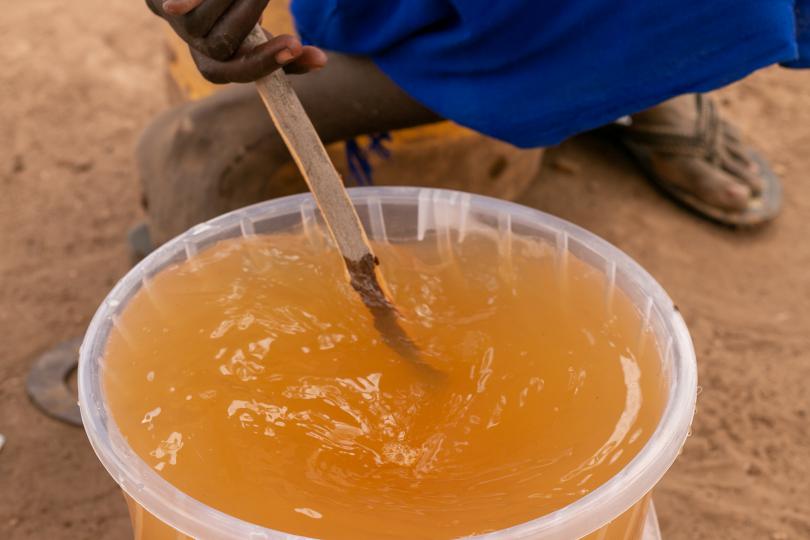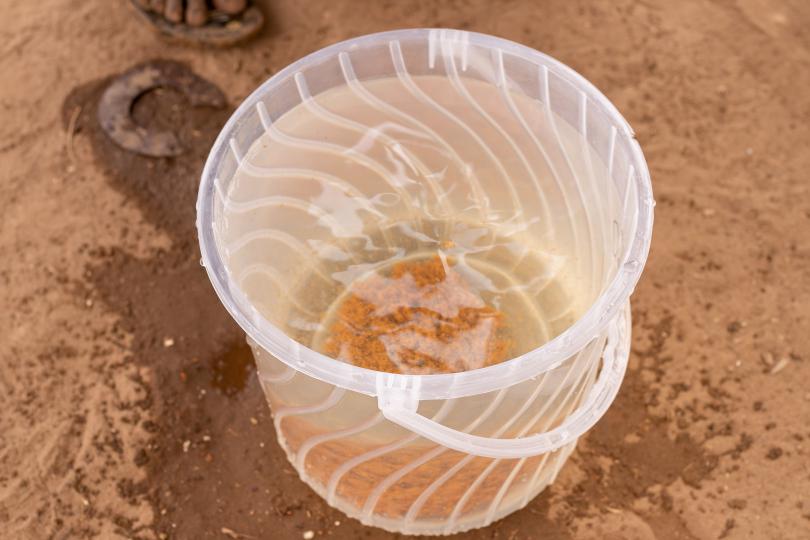Water purification sachets reprieve for communities in Turkana

By Florence Dzame
In Turkana County Northern Kenya Lokiru, 4 months, nestles quietly in his mother’s leso as she walks towards a health outreach camp in a village in Kerio ward. Turkana is an arid and semi-arid land (ASAL) and the population has long suffered from marginalization that has left the county with a dearth of basic services, poverty, food insecurity, poor infrastructure, poor governance and poor state of basic social services.
The outreach that is organized by Save the Children offers health services every two weeks to the community which mainly include general checkup by a nurse for treatment of common ailments who determines whether there is need for further medical diagnosis which may require a referral.
Also offered are deworming and immunization services for children, reproductive health education anddistribution of water purification sachets. Lokiru’s mother, Rebecca 28, is eager to receive the water purification sachets. Due to the drought and other effects of climate change experienced in the area access to water has been a challenge and the community is forced to walk further to get water that is often contaminated.
“I walked for one hour to fetch water from the river,” said Rebecca through a translator.
According to an internal assessment conducted by Save the Children in 2019, the distance to access water has increased by 2-10 KM and most traditional water sources have decreased.
At the outreach, Lokiru and his mother are confirmed to be in good health. She is given 24 water purification sachets to last her for two weeks until the next outreach cycle. She is also taught basic hygiene practices like handwashing, water treatment and storage; and proper fecal disposal.
“When we don’t have these sachets the children get diarrhea after drinking the water from the river,” said Rebecca through a translator.
Back in her homestead Rebecca stirs in the water purification mixture into a container filled with 20 liters of water.
“I was instructed at the health outreach to stir the water for five minutes and allow it to settle for about 20 minutes before I filter out the clean water,” she says.
The results after the 20 minutes are amazing, and the water is clean and safe for consumption.
In Kenya 3.1 million people are currently in need urgent of humanitarian assistance. The drought and flooding experienced as a result of climate change has compromised children’s access to safe drinking water, as availability of water decreases, and water systems get contaminated or disrupted. Save the Children is currently responding to the Horn of Africa climate change and resilience response through interventions in health and nutrition, water hygiene and sanitation, food security and livelihoods, protection, education in emergency and advocacy.






